3rd Annual Indigenous Awareness Week

McGill University’s Indigenous Awareness Week is designed to increase awareness at McGill about Indigenous peoples in Canada. The week honours the many Indigenous cultures across the country including the Métis, the Inuit and First Nations. The week also offers an opportunity to collaborate with community partners and draws active participation from McGill students, faculty and staff.
The week is organized by the Social Equity and Diversity Education Office at McGill University.
SEDE's Indigenous Education Program seeks to develop a broad-based educational campaign by providing Indigenous-specific programming and opportunities for bridge-building among diverse members of the McGill community.
For more information, please contact the Indigenous Education Advisor, Allan Vicaire.
Monday September 23, 2013
OPENING CEREMONY
12:00PM – 3:00PM, Ballroom, Thomson House, 3650 McTavish Street
The Opening Ceremony for the 3rd annual Indigenous Awareness Week will begin with a welcoming address and blessing from McGill’s elder Alex Sonny Diabo. The warm welcome will be followed by traditional Inuit throat singing by Nina Segalowitz and Taqralik Partridge. Finally, our keynote speaker
Teresa Edwards, Director of Human Rights and International Affairs for the Native Women’s Association of Canada, will be presenting the realities and current issues faced by Indigenous women across Canada, ranging from healthcare, to domestic violence, to missing and murdered women.
Opening Ceremony Schedule:
- 12:00PM – 12:30PM: Lunch Buffet
- 12:30PM – 1:00PM: Welcoming Address and Blessing
- 1:00PM – 1:20PM: Inuit Throat Singing
- 1:20PM – 2:10PM: Challenges and Barriers for Indigenous Women with Michèle Audette
- 2:10PM – 2:30PM: Closing Remarks
About the Speaker:
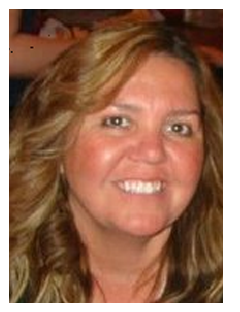
Teresa Edwards is a Mi’kmaq woman, a member of the Listuguj First Nation, and the mother of three wonderful children. Her traditional name is Young Fire Woman. She has worked for
more than 20 years to advance the needs and rights of Aboriginal Peoples, with a particular focus on addressing Aboriginal women’s human rights.
In 2004, she worked with the Native Women’s Association of Canada (NWAC) to secure funding for the Sisters In Spirit initiative, aimed at raising public awareness about the growing number of missing and murdered Aboriginal women in Canada. She has travelled to more than 100 First Nations’ communities within Canada and to international fora to engage people in identifying ways to address all forms of violence, including trafficking in humans, Nation-building and re-building, human rights awareness and implementation, education and
economic development and many other socio-economic issues.
In her current role as the Director of International Affairs and Human Rights, and internal Legal Counsel for the Native Women’s Association of Canada (NWAC), Teresa is dedicated to promoting gender equality in such forums as the United Nations (UN) and regional organizations such as the Organization of American States (OAS), where Indigenous issues are advocated for collectively with other Indigenous Peoples.
Tuesday September 24, 2013
KANIEN’KEHÁ:KA ONKWAWÉN:NA RAOTITIÓHKWA LANGUAGE AND CULTURAL CENTRE TOUR
9:00AM - 1:00PM, Kahnawake Cultural Centre

Join us on a tour of the Kahnawake Cultural Centre’s permanent exhibit which showcases the rich culture and history of Kanien’keha:ka. Beginning with the foundation of the Haudenosaunee Confederacy to the 1990 Oka Crisis, the permanent exhibit features key cultural and historical events that best explain who the Kanien’kehá:ka people are.
Space is limited. Register by e-mailing asp.sede [at] mcgill.ca
RESTRUCTURING THE INDIGENOUS-CROWN RELATIONSHIP IN CANADA: THE PROMISE OF INDIGENOUS MULTILEVEL GOVERNANCE
2:00PM - 4:00PM, Ballroom, Thomson House, 3650 McTavish Street
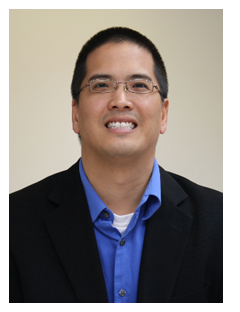
One of the most important political challenges facing this country is the strained relationship between Indigenous communities and the federal, provincial, and territorial governments of Canada. Although Canada has tried a variety of ways to better engage and establish stronger relationships with its Indigenous peoples, these efforts have largely failed, resulting in widespread distrust and conflict. Recent trends, however, offer some hope. In this presentation, Christopher Alcantara, an award-winning professor from Wilfrid Laurier University, will discuss how the emergence of Indigenous multilevel governance may provide an innovative and achievable model for repairing the relationship between the Crown and Canada’s Indigenous populations.
Christopher Alcantara is an associate professor in the department of political science at Wilfrid Laurier University. His main research interests are in the fields of Indigenous-settler relations and politics, territorial governance in the Canadian north, federalism and multilevel governance, public policy and administration, and more recently, Canadian voting behaviour. He has written two books, Negotiating the Deal: Comprehensive Land Claims Agreements in Canada (UTP: 2013) and Beyond the Indian Act: Restoring Aboriginal Property Rights (MQUP: 2010), the latter of which was coauthored with Tom Flanagan and Andre Le Dressay. He has published numerous articles in the Canadian Journal of Political Science, Canadian Public Administration, Electoral Studies, Public Choice, Publius: Journal of Federalism, Regional and Federal Studies, and Urban Affairs Review among others. His research was a finalist for the Donner Prize in 2011 and the McMenemy Prize in 2013, and has won the J.E. Hodgetts Award for best article in the Canadian Public Administration journal, as well as the David Watson Memorial Award for "the paper published in the Queen's Law Journal judged to make the most significant contribution to legal scholarship.”
WORKSHOP ORGANIZED BY KANATA
4:00PM - 6:00PM, Room 5001, Brown Building, 3600 McTavish Street
Description TBA.
UNDERSTANDING MOHAWK: LANGUAGE AND HISTORY
6:00PM - 8:00PM, Room 430, 3610 McTavish Street
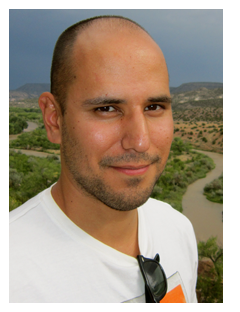
Discover and learn Mohawk. The session will provide opportunities to learn basic Mohawk and understand the historical evolution of the language and its recent revitalization program in Kahnawake. Guiding the session will be Akwiratékha Martin, Mohawk Language Instructor from the Kanien'kehá:ka Onkwawén:na Raotitióhkwa Language & Cultural Centre.
About the Speaker:
Akwiratékha Martin is Kanien'kehá:ka from Kahnawà:ke and has been teaching Kanien'kéha for the past 9 years. Along with teaching, he has also been a translator and/or voice dubber for several APTN television shows, such as By The Rapids, and Finding Our Talk. He has recently worked for Ubisoft on Assassin's Creed 3 as Kanien'kéha Language Consultant. He is currently employed at Kanien'kehá:ka Onkwawén:na Raotitióhkwa Language and Cultural Center in Kahnawà:ke.
Wednesday September 25, 2013
MCGILL'S VISION: INDIGENOUS STUDIES PROGRAM
11:00AM - 12:00PM, Lev Bukhman Room (2nd floor), SSMU Building, 3480 McTavish Street
Since the early 2000s, efforts have been made to develop an Indigenous Studies program at McGill University. On November 27th 2012, a forum was held jointly by the Students’ Society of McGill University and the Social Equity and Diversity Education Office. This forum was held to consult members of the McGill community on their vision for an Indigenous Studies program.
DREAMCATCHER MAKING WORKSHOP (STAFF AND FACULTY ONLY)
12:00PM - 2:00PM, Arts Council Room, Room 160, Arts Building
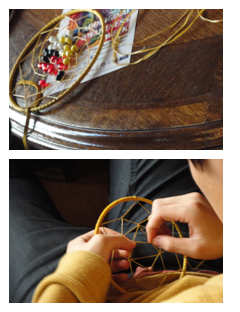
Explore your creative side and discover a part of First Nations traditional craft: the Dreamcatcher. The workshop will be led by Marie-Celine Charron from the Naskapis First Nation of Kawawachikamach.
TRADITIONAL HOOP DANCING WORKSHOP
2:00PM - 4:00PM, Lower Campus
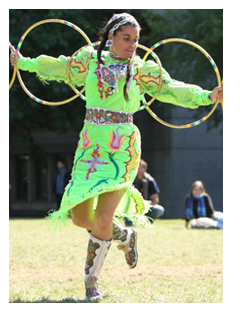
The Indigenous Student Alliance wants the McGill community to join them on the Lower Field for an interactive workshop on Indigenous hoop dancing. This will be an opportunity to get moving and discover traditional First Nation dancing.
LAW VS. JUSTICE: HOW THE COURTS ARE PREPARING THE WAY FOR ONE LAST, FATAL, ROUND OF TREATY NEGOTIATIONS WITH INDIGENOUS PEOPLES IN CANADA
5:30PM - 7:00PM, Maxwell Cohen Moot Court (Room 100), New Chancellor Day Hall, 3644 Peel Street
In interpreting section 35 of the Constitution Act, 1982, the Supreme Court of Canada has laid out a framework that relies heavily on outmoded concepts of colonial law. The Court has expressed a preference that the major work of reconciling Canadian sovereignty with Indigenous sovereignty should be done at the negotiating table. The Court has also emphasized “consultation” as the appropriate way for government to deal with conflicts between resource extraction and the historical claims of Indigenous peoples, but said that Indigenous peoples in those consultations can never simply say “no”.
In an era of mounting pressure to squeeze every ounce of economic value from Indigenous land, on an often breathtaking timetable, this Supreme Court doctrine condemns Canadian First Nations to take part in one last round of “Treaty” negotiations, where the stakes are sky-high, the cost of failure is potentially catastrophic, First Nations’ negotiating position has been undermined, and they may simply not have the resources to have lawyers and negotiators at the tables for as long as it takes.
About the Speaker:
Mary Eberts joined Hensel Barristers as counsel in 2013, after completing her term as Ariel F. Sallows Chair in Human Rights at the University of Saskatchewan. She has litigated in trial or appellate courts in most of the jurisdictions in Canada, in the Federal Court and Court of Appeal, in the Supreme Court of Canada, and at inquests and administrative proceedings, appearing as counsel in many leading cases. She has been litigation counsel for the Native Women’s Association of Canada for over twenty years, and was a co-founder of the Women’s Legal Education and Action Fund (LEAF).
Mary Eberts writes and lectures, nationally and internationally, on constitutional and Charter law, Indigenous law, and human rights. Ms. Eberts received her legal education at Western University and the Harvard Law School. She has been a faculty member at the Faculty of Law, University of Toronto, and held the Gordon Henderson Chair in Human Rights at the University of Ottawa. Before opening a specialized litigation practice in 1994, she was a partner at Torys in Toronto. Ms. Eberts grew up in southwestern Ontario, near Lake Erie, and is a mother and grandmother.
Organized by The Wallenberg Conference, honouring Raoul Wallenberg, the Swedish diplomat whose actions saved the lives of thousands of Jews in Hungary during the Second World War.
Thursday September 26, 2013
KAIROS BLANKET EXERCISE
10:00AM - 12:00PM, Room 200, Coach House, 3715 Peel Street
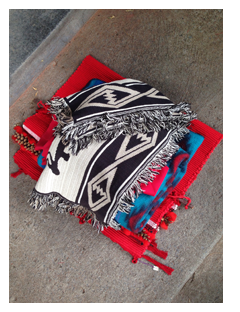
An interactive exercise on the relationships between the Crown and Canada’s Indigenous populations, from the settlers’ arrival to modern times. Participants are guided through centuries of denial of Indigenous nationhood and the gradual appropriation, relocation, and removal of Indigenous peoples and territories.
The exercise begins with blankets spread across the floor, which represent land occupied by Canada’s Indigenous populations. As participants are guided through centuries of negotiations, treaties, decrees, and other interactions with European settlers, the blankets on which they stand are slowly removed, until only a few participants remain on a small area representing what little remains of Indigenous territory today. The exercise will then be followed by a talking circle.
This event is hosted by Allan Vicaire, Indigenous Education Advisor, and Paige Isaac, Coordinator of the First Peoples’ House.
Spaces are limited. Register by e-mailing asp.sede [at] mcgill.ca
DREAMCATCHER MAKING WORKSHOP (STUDENTS ONLY)
12:00PM - 2:00PM, Arts Council Room, Room 160, Arts Building

Explore your creative side and discover a part of First Nations traditional craft: the Dreamcatcher. The workshop will be led by Marie-Celine Charron from the Naskapis First Nation of Kawawachikamach.
Spaces are limited. Register by e-mailing asp.sede [at] mcgill.ca
"WHO MAKES THE CALL?" A PANEL ON INDIGENOUS IDENTITY
1:15PM - 3:15PM, Lev Bukhman Room (2nd floor), SSMU Building, 3480 McTavish
Centuries of colonization through government policies have blurred the line between Canada’s Aboriginal and non-Aboriginal populations. Today, Indigenous identity is a complex and multifaceted topic with different points of view to distinguish between Indigenous and non-Indigenous peoples.
Who has the right to define what it means to be an Indigenous person? Also, how important are language, ancestral territory, and culture in identifying oneself as being Indigenous? Is blood percentage a valid metric in determining this? Is Indian/Inuit status necessary to consider oneself Indigenous? Our panelists will address these questions and explore the complexity of this controversial and engaging subject.
Moderating this discussion will be Indigenous rights activist Ellen Gabriel. Panelists will include:
- Mohawk activist Cecile Charlie,
- Aboriginal artist Skawennati Fragnito,
- and McGill’s Michael Loft from the School of Social Work.
WAPIKONI MOBILE: PREMIERE OF SHORT FILMS
7:00PM – 8:30PM, Théâtre J. Armand Bombardier, McCord Museum, 690 Sherbrooke Street West
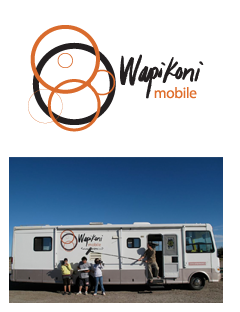
Join us for an exclusive screening of short films directed by First Nations youth. The Wapikoni mobile is a travelling audiovisual and music training studio that reaches more than 300 First Nations youth annually from across the province and provides them with valuable experiences in film and music creation.
Raymond Caplin, filmmaker of the short film animation In Your Heart from the Mi’gmaq First Nation community of Listuguj, will present his new short film and hold a Q&A session.
Friday September 27, 2013
KANEHSATAKE: 270 YEARS OF RESISTANCE
9:00AM - 11:30AM, Room 102, New Chancellor Day Hall, 3644 Peel Street
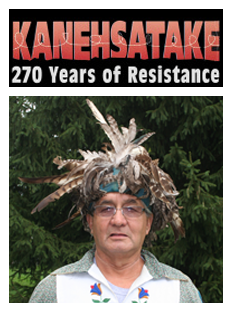
On a July day in 1990, a confrontation propelled Native issues in Kanehsatake and the village of Oka, Quebec, into the international spotlight. Director Alanis Obomsawin spent 78 nerve-wracking days and nights filming the armed stand-off between the Mohawks, the Quebec police and the Canadian army. This powerful documentary takes you right into the action of an age-old Aboriginal struggle. The result is a portrait of the people behind the barricades. Following the film, we will be joined by Elder John Onawario Cree who will discuss the aftermath and effects of the Oka Crisis on the Kanehsatake Mohawk community, then and now.
About the Speaker:
John Onawario Cree, Bear Clan Faithkeeper, Haudenosaunee, was born at his grandmother Marjorie’s home in Kanehsatake, Mohawk Territory and raised by his grandparents. He has worked in the United States as a Tree Surgeon, as an aircraft refueller and Aircraft Refueller Supervisor at Mirabel Airport and Trudeau Airport. He then became a bus driver for the Kanehsatake Education Centre for many years. In 2005, Onawario was hired as a Grandfather (Elder) to work with Indigenous inmates through Corrections Services Canada, from the minimum to the Super Maximum Special HandlingUnit in Ste. Anne des Plaines, Quebec. He is now retired but is often called upon to do retreats, openings, Sweat Lodge Ceremonies and Healing and Talking Circles and enjoys actively participating in conferences. Onawario has been happily married to his wife Linda for 43 years. They are very proud parents of a daughter and three sons, and grandparents to four grandsons and five granddaughters. Onawario still manages to do what he loves best – growing the “Three Sisters” - Indian white corn, beans and squash, traditional Grandfather tobacco and in the Spring, making maple syrup on his land in Kanehsatake.
INDIGENOUS HEALTH FOR FIRST NATIONS, INUIT AND MÉTIS
2:00PM - 4:00PM, Room 14, Leacock Building
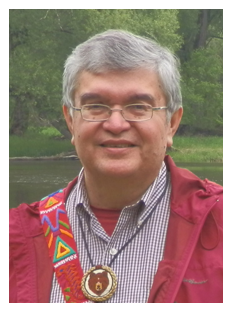
When we think of the health and well-being of Canada’s First Nations, Inuit and Métis populations, many questions inevitably arise. How does Indigenous health compare to non-Indigenous health? Where is Indigenous health headed? How can we incorporate healing through nature and culture into the practice of healthcare? How can we implement strength-based approaches to healthcare programs and policy in Canada? Simon Brascoupé, Adjunct Research Professor at Carleton University, will be giving a presentation on the status of healthcare for First Nations, Inuit and Métis peoples in Canada.
About the Speaker:
Simon Brascoupé, Anishinabeg/Haudenausanee – Bear Clan is a member of Kitigan Zibi Anishinabeg First Nation, Maniwaki, Quebec. Simon Brascoupé is an Adjunct Research Professor at Carleton University, and an Adjunct Professor in the Department of Indigenous Studies at Trent University in Peterborough, Ontario. He was recently awarded a Certified Aboriginal Professional Administrator (CAPA) from the Aboriginal Financial Officers Association of Canada (AFOA). He has a B.A. and M.A. from State University of New York at Buffalo, where he is also completing his Ph.D. He has a research interest in land-based healing, traditional medicine, and traditional knowledge. He conducts research and writes on cultural competency and safety. He published an article, Cultural Safety – Exploring the Applicability of the Concept of Cultural Safety to Aboriginal Health and Community Wellness, in the Journal of Aboriginal Health. He teaches Indigenous Studies at Carleton University. Previously Simon Brascoupé was Chief Executive Officer, National Aboriginal Health Organization; Director, Primary Health Care Division, First Nations and Inuit Health Branch, Health Canada; and Director, Aboriginal Affairs Branch, Environment Canada. He has written and worked in the field of traditional knowledge and intellectual Property Rights and is on Trent University’s Ph.D. Indigenous Knowledge Council.
COMMUNITY SOCIAL & FEAST
5:00PM – 7:00PM, Native Friendship Centre of Montreal, 2001 Saint-Laurent Blvd
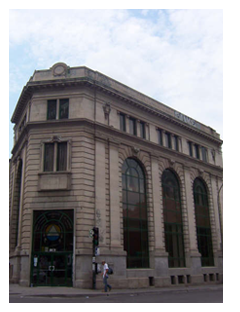
Come together and partake in the closing ceremony of the 3rd Annual Indigenous Awareness Week. Socialize, eat, sing, dance, and share your experiences of the past week.
Indian tacos will be served. Dancers are encouraged to bring traditional regalia.